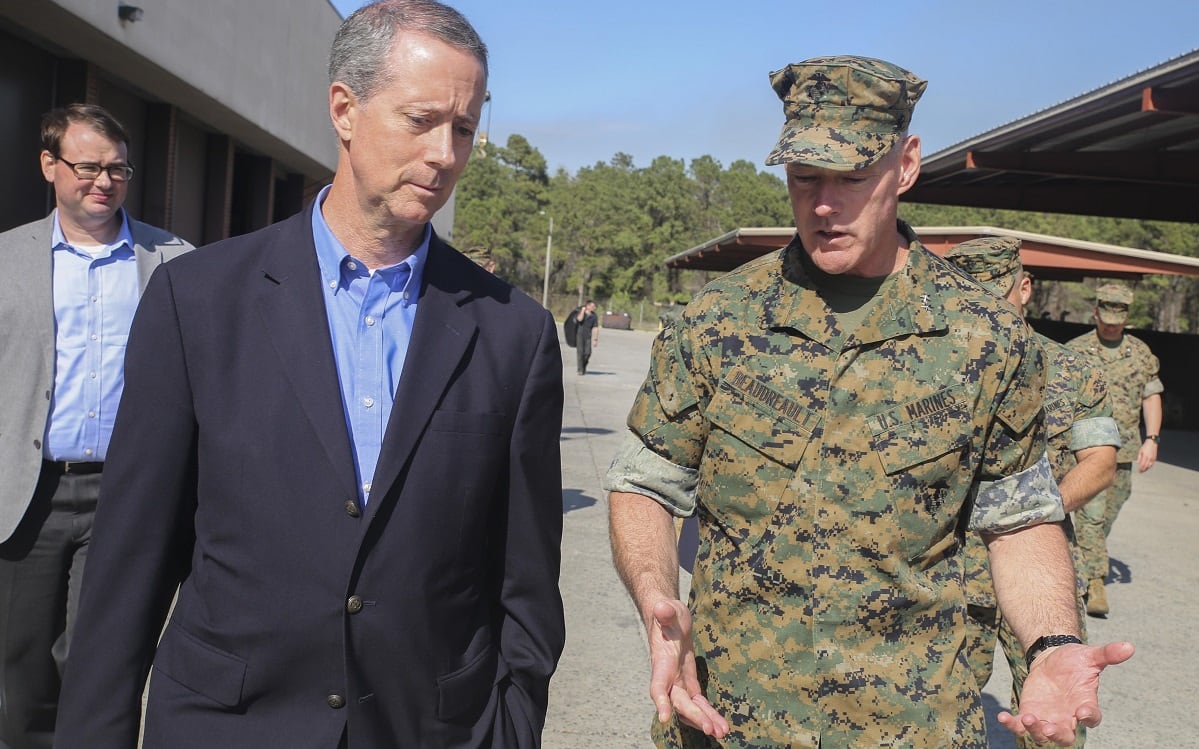Last year, Americans watched in disbelief as the Taliban took control of Kabul, Afghanistan. The next few weeks were filled with horrible images of men and women desperately trying to escape and American troops killed in a bombing outside the airport.
My mind went immediately to my son’s service in the Army in Afghanistan. I remember feeling relieved he’d been there many years earlier and was no longer in danger. But I also felt the weight of worry and fear felt by parents of the service members who were still there.
Some would see their children again; others would meet a flag-draped coffin at Dover Air Force Base. That is the heartbreaking reality of war and our nation’s foreign policy.
As we continue to demand accountability for the handling of the Afghanistan withdrawal and entire war, we should also be calling for a change to our whole approach to war, including our leaders’ propensity to lead with military engagement first and to use open-ended Authorizations for Use of Military Force instead of securing Congressional approval.
For more than 20 years, America’s military parents have seen our children sent off to conflicts in the Middle East and beyond. Sometimes we understand the reasons, and sometimes we don’t. But our kids do their duty all the same.
RELATED

In the case of Afghanistan, I knew the U.S. military needed to engage there, at least initially. The perpetrators of Sept. 11, 2001, and those who harbored them, needed to be punished. We accomplished what we originally set out to do, though we long outstayed the missions there. The war’s tragic end remains a testament to how far in the wrong direction our nation’s foreign policy has gone.
In that wrong direction lies the War in Iraq. The case for going into Iraq was weak at best but played on the raw emotions of a country still reeling from 9/11. There were no vital national interests at stake in Iraq, nor was our security at home at risk. The result has been more than 4,500 American service members killed, thousands more wounded, and trillions of dollars spent.
But still, our children answered the call to serve and did so with courage and honor, even to this day.
The combat mission in Iraq is over in name but not in actuality. Troops may not be officially engaging in combat, but they are actively in danger. Every day our troops are on the ground in Iraq is a day their lives are needlessly at risk — sometimes from militias that regularly cooperate with and are sometimes even supplied by the very Iraqi security forces our troops are sent to train. This is because our elected leaders at home have failed to take responsibility for their military engagement decisions, just like they did for two decades in Afghanistan.
America has an endless war problem. In our foreign policy, we’ve turned to military engagement as a first resort, not the last as it should be. We task our brave men and women, my son included, to fight an enemy that is ill-defined and, despite their hostility elsewhere, not a credible threat to us at home.
Service members’ lives are at risk because Congress lacks the courage to vote on when to send them into harm’s way, to ask tough questions, or to say, “enough is enough.”
Looking back a year after the withdrawal from Afghanistan, I’m so thankful our troops are no longer deployed there. I’m hurting for those from whom the withdrawal took their children. I’m all the more committed to getting closure and accountability for them and ensuring any troops deployed in operations that don’t serve a national interest are brought home safely and without delay.
Congress can do its job by learning from the war in Afghanistan as a whole, including both the strategic mistakes made in choosing to nation-build and in executing the withdrawal. It should apply those lessons to any current or future military engagements we consider.
Our sons and daughters did the jobs they were asked to do in Afghanistan, Iraq, Syria, Somalia, and beyond. The least we can ask of our elected officials is to honor them by making tough decisions about war and keeping them out of unnecessary danger.
Russ Duerstine is executive director of Concerned Veterans for America, an Air Force veteran and the father to a combat veteran of the Afghanistan and Iraq Wars.
Have an opinion?
This article is an Op-Ed and as such, the opinions expressed are those of the author. If you would like to respond, or have an editorial of your own you would like to submit, please email us.
Want more perspectives like this sent straight to you? Subscribe to get our Commentary & Opinion newsletter once a week.




